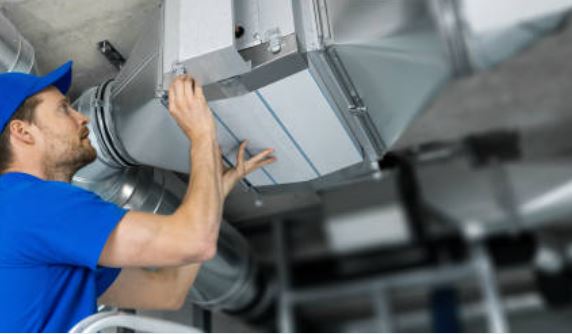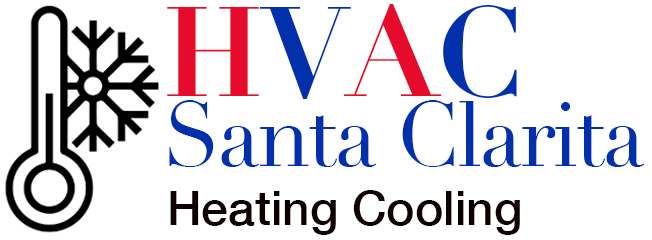Heat pump vs HVAC, which is the best?

If you are looking for a heating and cooling system, you must have come across this question.
You can use a conventional air conditioner or an HVAC system for your house. You may need a furnace combination for winter if you have a conventional air conditioner.

call 661-888-0248
Contact 24/7 for air conditioning services!
On the other hand, you will not need a furnace if you have a heat pump system, unless your winters are extreme.
There are many differences between an air conditioning system and a heat pump. You need to check the features of the two before acquiring one. A constant in the HVAC vs air conditioning debate is you will always need repair and maintenance services. If you are looking for air conditioning repair Santa Clarita, we are the people to contact.
Alright, let’s dive right into the air conditioner vs heat pump comparison.
Conventional HVAC systems

A conventional HVAC system comprises an air conditioning system and a separate furnace.
The central air conditioning systems cool the house in summer, while the furnace does the heating in winter.
Depending on your climate, or other options, you can decide to buy an air conditioner or just a furnace.
Typically, the air conditioner is electric. And it comes with two systems, the indoor and the outdoor system.
On the other hand, the furnace can be gas or electric-fueled.
Despite being two different systems, the furnace and the air conditioner share the air circulating components such as:
- the ductwork,
- blower fan,
- Thermostat.
Heat Pump Systems Basics

A heat pump is one unit that produces heating in winter and cooling in summer.
In winter, the heat pump system will move warm air from outdoors to your indoor space. In summer, it will move out of the hot air. It just reverses the operation process to get you the needed comfort.
Heat pumps are a superb heating choice for people living in temperate areas. They are not so energy efficient when the winters are so severe.
If you live in areas that get frigid in winter, you may need a furnace to heat your home. Or another source of heat such as an auxiliary electric heater.
The amount of heat outside may not be efficient enough to keep your house warm. The heat pump will transfer it, but your house will remain uncomfortably cold.
Since you use your heat pump all year long, you will need to be super vigilant with its maintenance. Contact us for air conditioning service Santa Clarita, just to keep your systems on peak performance all year long.
Heat Pump vs HVAC System: Which is the Best System for You?
These are some of the best instances to select a heat pump over a conventional HVAC system.
Heat Pump vs HVAC system: Energy Efficiency

A heat pump will be a great option if you are looking for an energy-efficient heating and cooling system.
In summer, we can say the energy efficiency of a heat pump may be almost similar to that of an HVAC system, especially if the systems have the same SEER rating.
However, the difference comes in winter. A furnace combusts fuel to produce the heat you need in winter. This differs from a heat pump that transfers heat outside to your living savings.
The energy consumed by a furnace is way too much. If you are after saving some coins in terms of the cost of running, a heat pump is much better.
According to the U.S. DOE, using a heat pump can save up to half your annual energy cost.
In fact, with a geothermal heat pump, you can save much more. Geothermal heat pumps are way more energy efficient.
Compare the heat pump vs gas furnace energy carefully before acquiring one.
HVAC vs Heat Pump: Longevity

An air conditioner and furnace typically last longer than a heat pump.
These two work only a few months in the year. For instance, you only need your air conditioning system in summer.
On the other side, you will use your heat pump all year. It only makes sense to last a shorter time than air conditioners.
If you are not in the business of replacing your heating and cooling system sooner, a heat pump is not such a good idea.
Note:
- Geothermal heat pumps are an exception when it comes to this. They last the longest. They may serve you for up to an incredible 50 years.
- To keep your heat pump all that long, you need to take good care of it. We will step in for it if you need Santa Clarita heating and air conditioning services.
Maintenance

With a conventional HVAC system, you will have two different systems to maintain.
You will have to cater for the air conditioner and a furnace.
And the air conditioner comes with two systems, too, the indoor and outdoor units. If you are performing it yourself, it can be very involving and time-consuming. Also, contacting an HVAC technician can be very expensive.
On the other hand, a heat pump has a cooling and heating function in one system. This makes maintaining it very simple and inexpensive.
Upfront and Installation Costs

When you compare heat pump vs air conditioner upfront costs, heat pumps always turn to be costlier. This is if the systems are of the same size, brand and SEER rating.
But it makes sense for a heat pump to be pricier; you are buying a heating and cooling system in one.
The upfront budget of a geothermal heat pump is even higher, thanks to the excavation and license costs.
However, getting a separate furnace for your winters may make a conventional heat pump a cheaper option.
Note: This depends heavily on the systems you buy.
Climate

A heat pump is not a great option if you live in a climate that freezes in winter. You are better off getting an air conditioner and a furnace for winter.
In summer, a heat pump would not have any complications. However, as winter’s function reverses, the heat pump efficiency drops.
From the freezing point, there is usually no more heat outside for the heat pump to draw. With this problem, many homeowners opt for a furnace, which is much more expensive.
Heat Pump Pros

- highly energy efficient,
- reduced utility bills,
- fewer maintenance costs as the heating and cooling systems are all in one.
Heat Pump Cons
- Shorter life span,
- not as effective when temperatures drop,
HVAC System Pros

- efficient heating even when the temperatures drop below freezing point,
- longer lifespan.
HVAC System Cons
- Higher monthly bills, especially with the cost of running a furnace,
- Higher maintenance costs as you will have several systems to maintain.
Working with an expert to get the best cooling equipment for your house

When getting new HVAC equipment, there are super important factors to consider. Making keen decisions will help you answer the big questions.
For instance, do you need a heat pump if you already have a furnace?
What HVAC equipment is suitable for your budget?
It would be best if you worked with an HVAC technician to get the best equipment for your budget.
With a professional on your side, you will surely get something that will suit your needs and budget. And on top of that, you will get a proper installation process and tips on improving your system’s performance and life expectancy.
Feel free to contact us if you want a cooling and heating system. We would be glad to get you the best in terms of HVAC system and heat pump installation in Santa Clarita CA.
HVAC vs Heat Pump Frequently Asked Questions

There are some similarities between heat pumps and air conditioners. However, there are some distinct differences to watch out for between these two. This may make it difficult for you to choose the best option. We answer some FAQs to help you make the best decision.
If your question goes unanswered, reach out to us.
What is the difference between a heat pump and an HVAC?
A heat pump carries out the heating and cooling processes. It has a reversing valve activated to change the direction and heat your house in winter.
On the other hand, the direction of flow in an HVAC system is just one. It, therefore, can just cool your house in the summer heat.
Both heat pumps and HVAC systems do not produce cool or hot air. They move the hot air from where it is not needed to where it is.
Which is better heat pump or the central air?
At a glance, a heat pump would appear to be much better than a central air conditioner. However, what is better depends on your situation.
For instance, if you have a furnace in place already, it would be the worst idea to go for a heat pump.
Also, a heat pump is not the best if your winter temperatures go below freezing.
However, if you live in a mild climatic area and love cooling and heating equipment, a heat pump is an ideal choice.
What is the downside to a heat pump?
Some of the heat pump downsides include:
- they are typically costlier than conventional air conditioners,
- they are not as effective when temperatures drop below freezing point.
Is a heat pump part of an HVAC system?
A typical HVAC system comprises an air conditioner and sometimes a furnace.
A heat pump is not part of a conventional HVAC system.
How do Heat Pumps Work
Heat pumps work just like the conventional air conditioner. They, however, come with a valve that allows for a change of direction. When the settings are changed, the heat pump will reverse the refrigerant flow and, consequently, the cooling flow.
How long do heat pumps last?
They last 8-15 years. How long they last, depend on factors such as how well you care for them.
On the other hand, air conditioners typically last 15-20 years(1).
Heat Pump vs HVAC System Final Thoughts
We are calling it a day. At this point, we are convinced that you know which system suits you better.
If not, consider climatic, efficiency and cost factors to make a good choice.
However, it would be great if you always involved an HVAC technician in deciding, purchasing and installing your heat pump or HVAC equipment. You expect this equipment to last you over a decade; you don’t want to be stuck with a wrong choice all that long.
Contact us today if you would use a professional helping hand with heat pump and HVAC systems.
Please get in touch with us for all your Heating Repair needs >

call 661-888-0248
Contact 24/7 for air conditioning services!
Our Address is
HVAC Santa Clarita
26893 Bouquet canyon rd #G
Santa Clarita CA 91350
Opening hours
Monday 8 am – 8 pm
Tuesday 8 am – 8 pm
Wednesday 8 am – 8 pm
Thursday 8 am – 8 pm
Friday 8 am – 8 pm
Saturday 8 am – 8 pm
Sunday 9 am – 5 pm
